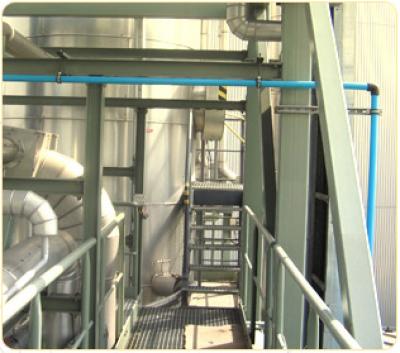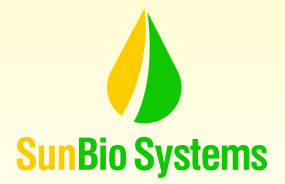Biodiesel may be the home grown fuel to finally quench America’s 20 million barrel a day thirst for oil. Made from vegetable oil and animal fat, biodiesel is an alternative fuel on the rise with production reaching 200 million gallons in 2006.
SunBio Systems manufactures biodiesel machines that produce up to 15 million gallons of fuel a year and will be showcasing one of its machines at the National Biodiesel Conference & Expo, February 4-7 at the Henry B. Gonzalez convention center in San, Antonio, Texas. SunBio will display the first “Plug and Play” modular biodiesel system in the US. At 15ft high by 28ft long and 14ft deep it will be on display in a tent across from the convention center at Sunset Station.
“Plug and Play” means it connects onsite something like Legos® in 3 to 5 days and boasts a highly advanced computer controlled automation system, making set up easy and worry free. The company will exhibit at booth numbers 17 and 18 inside the convention center.
“Increased biodiesel fuel production is a win-win for everybody. It reduces America’s dependence on foreign oil, expands agricultural opportunities for farmers and reduces harmful emissions in the environment,” said Steve Austin, president, SunBio Systems. “Biodiesel is a clean air fuel that gives back 3.2 units of energy for every unit of energy it takes — making it more efficient than ethanol. SunBio Systems will continue to bring innovation to our biodiesel machines to help America bolster its alternative fuel options and gain greater autonomy over its energy supply,” added Austin.
Biodiesel is renewable fuel made from vegetable oil (derived from soybeans, canola, mustard, sunflowers, etc.) and animal fat and works in any diesel engine. About two and half acres of canola can yield up to 324 gallons of biodiesel. This is enough to produce over 83,000 watts of electricity in 24 hours. Even more amazing, fast food restaurants produce over 3 billion gallons of used cooking oil a year, which can be recycled to make biodiesel.
Based in Santa Clara, California, SunBio manufactures biodiesel equipment ranging from university research and development systems and truck fleet to farm systems and mid-sized plants. The company uses GE Fanuc controller systems, featuring automation software and QuickPanel(TM) touch screens in its machines because of the ease of use it provides clients. All machines meet the American Society of Testing and Materials (ASTM) standards for quality fuel. SunBio’s research laboratory is based in Silicon Valley and its board of advisors includes professors from University of California Santa Barbara, University of Iowa, University of Udine, Italy, University of Hyderabad, India, and Tamil Nadu Agriculture University, India.
Silicon Valley Biodiesel, Inc. was the first client to purchase a machine from SunBio for its production facility in Sanger, California. Using local recycled fats, oils and greases as fuel feedstock, Silicon Valley Biodiesel, Inc. supplies biodiesel to local fleets, cities and regional suppliers. It plans to build five more commercial plants in the next two years.
“I talked with about a half a dozen biodiesel equipment suppliers but felt even as a start up, SunBio had a better understanding of the needs of a biodiesel plant than other companies. SunBio’s pre-processor quality control system measures the amount of fatty acids in each batch of feedstock oil and adjusts the production process to yield the most biodiesel every time,” remarked Walt Bacharowski, president, Silicon Valley Biodiesel, Inc.
Recently, PK Farms, a 2,000 acre Ohio farm, purchased a 5 million gallon capacity machine from SunBio to produce 20,000 gallons of biodiesel fuel a day to sell to regional fuel distributors.
“We purchased SunBio’s machine because it is the most technologically advanced supplier on the market today. It’s methanol recovery system doesn’t allow harmful vapors to escape into the air and its ionic resin polishing process removes impurities from the finished fuel product without adding water, eliminating the need to dispose of hazardous waste water,” said Jack Purdy, owner of PK Farms.
Government and private fleets are realizing the benefits of biodiesel, making it the fastest growing alternative fuel in the US. Nationwide, more than 600 major fleets use biodiesel and 800 retail filling stations carry it. The economic benefits of renewable fuels are also enormous. According to a study conducted by the National Biodiesel Board, America’s biodiesel industry will add $24 billion to the US economy from 2005-2015, assuming production reaches 650 million gallons a year by 2015.

